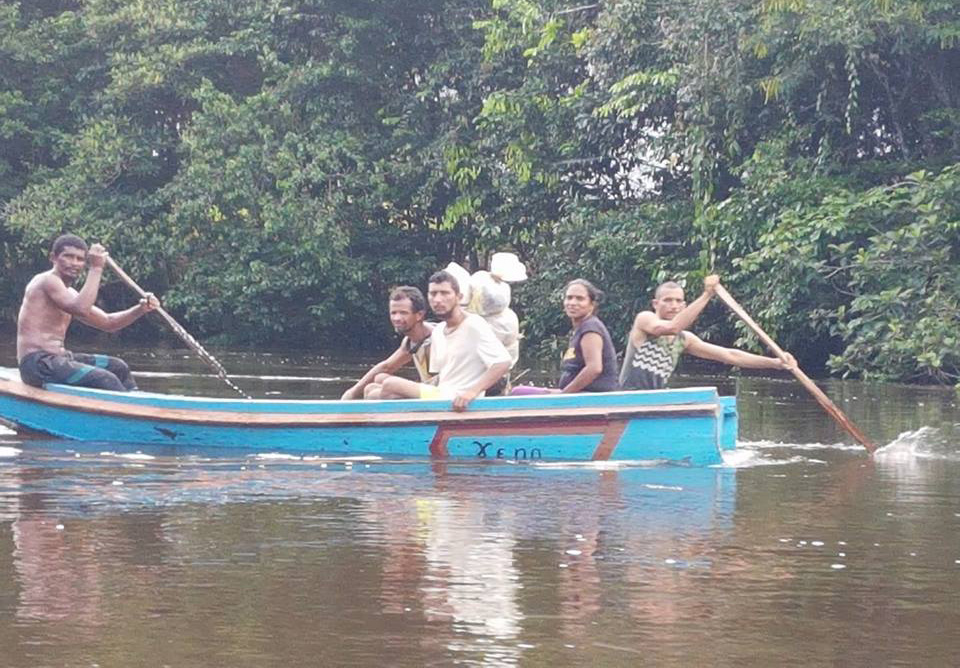Health workers in Kaikan Village, Region Seven (Cuyuni-Mazaruni) are in need of an intervention from the relevant authorities in the wake of an influx of sick Venezuelans who travel to the village seeking medical attention.
An indigenous community located in the Upper Cuyuni Region, Kaikan Village sits near the Guyana/Venezuela border, with only the Wenamu River separating the two territories.
Stabroek News understands that health workers have reported treating at least 10-15 Venezuelans per day, an increase in numbers that they say is most likely linked to the access of free health care at the Health Centre.
Among the ailments the Venezuelans reportedly seek treatment for are malaria and skin infections.
However, while the health workers are willing to help and the villagers are open to offering assistance to their neighbours from across the border, there are some challenges that they feel need to be addressed, including the need for security at the Health Centre and the availability of medical supplies.
According to Amerindian Peoples Association representative Michael McGarrell, who recently visited the village, staff at the Health Centre have shared encounters where they were visited by “aggressive” Venezuelans seeking treatment at the centre.
In one instance, McGarrell noted that the Toshao received a report from a health worker who claimed to have been sexually harassed by a Venezuelan man. This complaint had prompted the Toshao to approach the man, who left the village and to date, has not returned.
Meanwhile, other staffers of the Health Centre are reportedly scared to work there, as there is no proper security presence at the medical facility.
Regarding the availability of drugs, reports are that there are not enough and treatment of patients has been limited in an attempt to cater to all the patients who visit the facility.
Stabroek News understands that though requests for additional drugs are made, they do not reach the village for at least three to six months.
This being said, it was noted that in cases of malaria treatment, the very ill patients are given a full dose of medication, while persons who are not so very sick receive up to four days treatment, in order to limit the amount of drugs being dispensed.
Additionally, there have been reports of Venezuelans pretending to be sick in order to obtain drugs, which the health workers suspect they sell to those who are actually in need of treatment.
As a result, the health workers are adamant that they will only give medication to patients they see themselves.
Further, there is said to be on average two persons per week visiting the Health Centre for treatment of STI’s, an occurrence that has been linked to the increase in commercial sex work carried out by Venezuelans within the village.
This being said, McGarrell stated that there is need for Voluntary Counselling Training (VCT) services since the trained VCT Counsellor/ Tester is yet to receive the necessary resources to provide the services.
Stabroek News understands that a letter was sent to the Ministry of Indigenous Peoples’ Affairs and that the Village Toshao had met with the Minister of Public Security and the Chief of Staff last week, with the latter promising to launch an investigation into the claims. The Toshao is still awaiting a response from the Ministry.





